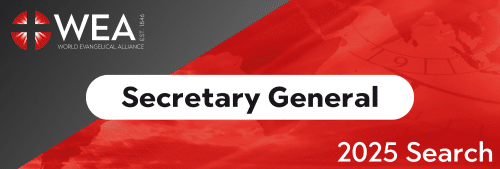WEA-RLC Research and Analysis Report — 01/2016
While U.S. Secretary of State John Kerry is scheduled to meet Lao Prime Minister Thongsing Thammavong on Jan. 25, Barack Obama will become the first U.S. president to visit this Southeast Asian country later this year. Their visits are to back Laos as the 2016 chair for the Association for South East Asian Nations, or ASEAN. As the United States makes this strategic move, it must urge Vientiane to improve its religious freedom record, which remains worrisome since 2009, according to the U.S. Commission on International Religious Freedom, or USCIRF.
The United States’ relations with Laos have improved during Obama’s presidency but with little or no change in Vientiane’s policies towards minority religions, as USCIRF continues to place Laos on the list of Tier 2 countries, in which religious freedom conditions require close monitoring due to the nature and extent of violations of religious freedom engaged in or tolerated by governments.
The Human Rights Watch for Lao Religious Freedom (HRWFLRF) has reported numerous incidents of persecution over the last few years.
A pastor, identified as Singkeaw Wongkongpheng, from Na-ang village in Luang Prabang Province’s Chomphet District in northern Laos was stabbed to death on Sept. 8, 2015 after he disregarded officials’ orders to stop preaching Christ.
On Sept. 17, a 61-year-old Christian believer, Tiang Kwentianthong, from Huey village in Atsaphangthong district of Savannakhet province died of diabetes-related complications in prison while serving a term of nine months. Prison authorities allegedly denied him treatment. He was charged under medical laws for praying for the sick.
Ethnic minority Protestant groups often face expulsion from village, forced relocation, pressure to renounce faith, detention and arrest, destruction of livestock and crop and closure of churches, especially in the provinces of Savannakhet, Bolikhamxai, Houaphan, Salavan, Luanprabang, Attapeu, Oudamsai and Luang Namtha.
It was hoped that Laos would gradually begin to allow religious freedom after the United States gave it a (non-permanent) normal trade status in 2004, two years after Vientiane passed the Prime Minister’s 2002 Decree on Religious Practice – known as Decree 92.
The decree was meant to showcase religious freedom in the country by legalizing religious activities – including propagation, printing of religious material, ownership and construction of places of worship, and forming an association with religious groups from other countries – which were previously deemed as illegal. But it also allowed the government to control, and interfere in, all religious activities, and required all religious organizations to register with the government. Besides, it banned any religious activity that could potentially create “social division” or “chaos” – vague terms whose definitions were left to the discretion of the authorities.
Around 60 percent of the roughly 7 million people in Laos are Theravada Buddhist who enjoy a special status in the Lao society. The communist government even promotes Buddhism, while suppressing minority religions. The government has co-opted the majority religion by controlling the organization of monks, seeking their support for its discriminatory and authoritarian policies.
The government recognizes the Catholic Church, the Laos Evangelical Church and the Seventh Day Adventists, and pressures other small independent Protestant congregations to come under one of these recognized groups.
The Hmong Christian community, which allied with the United States in the Vietnam War and later during the civil war in Laos, faces the brunt of Christian persecution. All Protestant Christians, especially those from the Hmong community, are seen as American or imperialist “imports” into the country and a threat to the communist rule.
Laos remains a single-party state ruled by the Marxist-Leninist Laos People’s Revolutionary Party (LPRP) since the end of the Laotian civil war in 1975. Persecution of Christians, and other minorities, is part of the government’s attempt to maintain its power.
Laos is a landlocked country, which shares borders with five stronger nations: Vietnam, China, Burma, Thailand and Cambodia, making Vientiane nervous and extra-cautious about any attempt by the people to form assemblies for any purpose without government regulation.
An example of this can be seen in the disappearance of Sombath Somphone, an internationally acclaimed community development worker, on Dec. 15, 2012, when he was last seen in Vientiane being stopped by police and then taken away in a pickup truck. He remains missing.
Laos is close to Vietnam, also a communist nation, not only geographically, but also ideologically. The two nations signed an agreement to “cooperate” on religious issues in 2002, and renewed it in 2014 for continued cooperation until 2020.
As USCIRF has recommended, Washington needs to integrate concerns about religious freedom into its bilateral agenda when engaging with central government and provincial Lao authorities. The Commission has made other additional recommendations, which include initiating a formal human rights mechanism to address regularly and consistently with the Lao government issues such as ethnic and religious discrimination, torture and other forms of ill-treatment in prisons, unlawful arrests and detentions, and the lack of due process and an independent judiciary.
“Continue to engage the Lao government on specific cases of religious freedom violations, including but not limited to forced evictions and/or forced renunciations relating to the practice of one’s faith, and emphasizing the importance of consistent implementation, enforcement, and interpretation of the rule of law by both central government and local officials,” adds USCIRF, an independent, bipartisan, U.S. federal government commission, in its 2015 report.
It is hoped that Kerry and Obama would begin implementing the recommendations as they visit Laos and meet high officials.
———————————————————————————————————————————————
World Evangelical Alliance (WEA) Religious Liberty Commission (RLC) sponsors this WEA-RLC Research & Analysis Report to help individuals and groups pray for and act on religious liberty issues around the world. WEA has a consultative status with the UN Economic and Social Council.
This report was researched and written by Fernando Perez, and moderated by the WEA-RLC Executive Director, Godfrey Yogarajah. It can be used for distribution or publication with attribution to WEA-RLC.
———————————————————————————————————————————————





Stay Connected